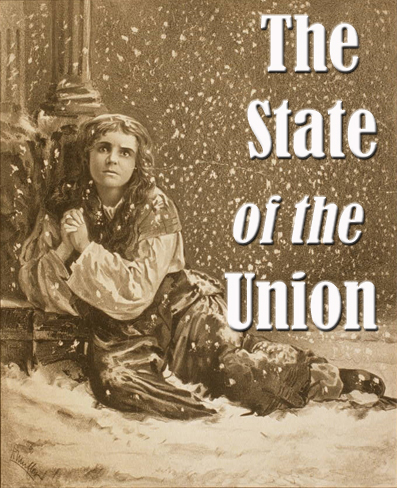Robert Barnes of the Washington Post writes at length about the SOTU Citizens United Justice Alito controversy. Mind you, there’s no discussion whatsoever of Citizens United; just back and forth about who dissed whom. Typical.
David Savage has a similar article at the Los Angeles Times, but at least Savage provides some background on what the Citizens United case is about and lets us know there is genuine controversy over the decision.
One of the weirder comments today is from Adam Winkler, who tells us soothingly that Alito was right —
Alito was right. The president was wrong about the Supreme Court decision. Obama said, “Last week, the Supreme Court reversed a century of law to open the floodgates for special interests, including foreign corporations, to spend without limit in our elections.” …
…There are a lot of grounds to criticize the Supreme Court’s campaign finance decision. It will allow corporations to spend shareholder money to influence the election of candidates many of those shareholders don’t support. And it does open up a loophole that allows foreign corporations to influence federal elections through their U.S. subsidiaries.
So how is Alito “right”?
But the Court did not overturn “a century of law.” The provision upended by the Court was only seven years old. It was a novel innovation of the McCain-Feingold campaign finance law adopted during the Bush Administration.
Oh, is that all? The thing about opening up a loophole to allow foreign corporations influence U.S. elections is not a concern?
David Savage writes that the Citizens United ruling did strike down a century of law:
Since 1907, Congress has prohibited corporations from using their money “directly or indirectly” to elect candidates for federal office. After World War II, Congress extended this ban to labor unions and made it clear that the ban applied to independent election spending, not just contributions to a candidate.
But last week’s decision in Citizens United vs. Federal Election Commission struck down this election spending ban. “The 1st Amendment does not permit . . . these categorical distinctions based on the corporate identity of the speaker,” said Justice Anthony M. Kennedy.
I’ve yet to see anyone explain how the ruling would not allow foreign corporations to influence elections, and IMO the idea that this case will somehow enable the free speech of the common person seems to me to be hallucinatory. All we get from the Right is knee jerk affirmation that the ruling is Good.
Meanwhile, there are a lot of smart people who are opposed to Citizens United and clearly state their reasons why. These include Justice Stevens, who said in his dissent that the ruling “would appear to afford the same protection to multinational corporations controlled by foreigners as to individual Americans.”
Joe Conason says that Alito so much as acknowledged that the ruling would allow interference by foreign corporations, but is OK with that.
“Well, Mr. Olson,” he [Alito] asked, “do you think that media corporations that are owned or principally owned by foreign shareholders have less First Amendment rights than other media corporations in the United States?” Replied Olson, “I don’t think so, Justice Alito, and certainly there is no record to suggest that there is any kind of problem based upon that.”
No problem with foreign-owned media corporations publishing and broadcasting in the United States, perhaps — although some critics have wondered from time to time whether the Washington Times and the Unification Church were acting as instruments of a foreign power. But if foreign-owned corporations possess fully the same rights as citizens to participate in elections under the majority decision — as Olson and Alito indicated — then we could face a serious problem indeed.
But of course, the Libertarians at Reason magazine think this is just dandy, because they love liberty so much. Now global corporate interests have more freedom to manipulate our elections.
One other thing — several writers, including Barnes and Savage, recall that Senator Obama was adamantly opposed to confirming Alito, and that Alito has snubbed the President ever since. Corrupt and petty; no wonder Republicans love Alito.
See also Eric Alterman, “Court Disposes, Media Yawn.”

 The White House has released a
The White House has released a 